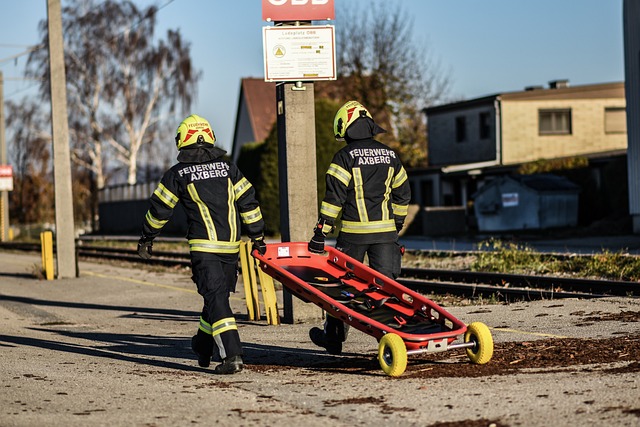Tanker trucks, critical for transporting hazardous materials, pose unique safety challenges due to their design and size. Mitigating risks includes anticipating hazards, proper training, adhering to traffic rules, and maintaining vehicles. Common causes of tanker accidents involve driver error, mechanical failures, and adverse weather. Safety measures like regular maintenance, load securing, and comprehensive training reduce likelihood and severity. Fostering a safety culture and partnerships with reputable insurance providers further enhance risk mitigation for tanker truck operations.
In the realm of commercial trucking, tanker trucks pose unique challenges due to their size and the hazardous materials they carry. Understanding the specific dangers is paramount for drivers to navigate safely. This article delves into the intricate world of tanker truck accidents, exploring the unique hazards and common causes behind these incidents. By shedding light on effective risk mitigation strategies, it equips drivers with essential knowledge to prevent potential disasters, ensuring safer roads for all.
- Understanding Tanker Truck Unique Hazards
- Common Causes of Tanker Accidents
- Mitigating Risks: Safety Measures & Best Practices
Understanding Tanker Truck Unique Hazards

Tanker trucks, while essential for transporting large volumes of liquids and gases, present unique hazards that drivers must be aware of to ensure safety on the road. Unlike standard vehicles, tankers are designed to maintain the integrity and pressure of their contents, which adds an extra layer of complexity in case of an accident. The potential risks include sudden releases of hazardous materials, fires, and explosions due to the nature of their cargo. These incidents can have severe consequences, not just for the truck driver but also for nearby vehicles, pedestrians, and the environment.
Understanding these hazards is crucial for drivers to anticipate and react appropriately. For instance, knowing how to safely handle a spill or fire requires specialized training. Furthermore, given the size and weight of tankers, they take longer to stop compared to smaller vehicles, making them more prone to rolling over in sharp turns or during sudden evasive maneuvers. A truck accident attorney would advise drivers to be vigilant, maintain safe distances, and adhere strictly to traffic rules to mitigate these risks.
Common Causes of Tanker Accidents

Tanker trucks, while essential for transporting large volumes of liquid materials, can pose significant risks on the road due to their size and nature of cargo. Understanding common causes of tanker accidents is crucial for both drivers and authorities to enhance safety measures. One of the leading factors contributing to these incidents is driver error, including fatigue, distracted driving, or lack of proper training. Due to the size and weight of tankers, even minor mistakes can result in catastrophic collisions.
Another prevalent cause is mechanical failures, especially with the intricate systems involved in transporting hazardous materials. Older vehicles lacking adequate maintenance or those equipped with faulty valves, pipes, or sensors are more prone to accidents. Moreover, poor weather conditions, such as heavy rain or fog, can reduce visibility and increase skidding risks, leading to tanker truck accidents. Seeking legal representation for a wrongful death claim is an option available to families affected by such incidents, ensuring accountability and compensation for their loss.
Mitigating Risks: Safety Measures & Best Practices

In the high-risk realm of tanker truck operations, mitigating potential hazards is paramount. To reduce the likelihood and severity of tanker truck accidents, several safety measures and best practices should be rigorously adhered to. These include regular vehicle maintenance checks to ensure all systems are functioning optimally, strict adherence to load securing guidelines to prevent shifting cargo, and comprehensive driver training programs that educate on defensive driving techniques and emergency response procedures.
Furthermore, fostering a culture of safety through open communication channels and team collaboration can significantly enhance risk mitigation. Regular safety meetings, peer mentoring, and continuous feedback loops encourage drivers to report concerns and share insights, fostering a proactive approach to safety. Equally important are partnerships with reputable insurance providers that offer tailored coverage for tanker trucks, including liability protection and comprehensive claims handling services, ensuring financial security in the event of accidents or disputes, whether it’s a partnership dispute or employment contracts, or homeowner insurance claims.
Tanker truck accidents pose significant risks due to their size, load, and hazardous cargo. By understanding the unique hazards and common causes, drivers can implement best practices to mitigate these dangers. Adhering to safety measures and staying vigilant can help prevent accidents, ensuring safer roads for everyone. Staying informed about tanker truck accident prevention is a crucial step in reducing potential risks on the highway.






